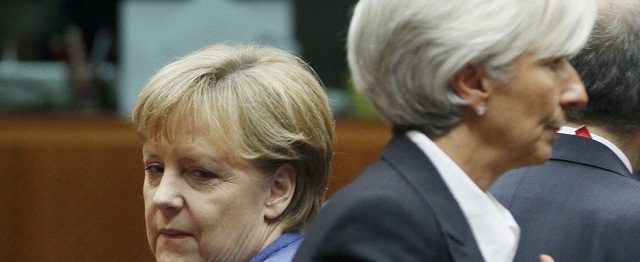While Berlin and other well-off capitals are waging a trench war in resisting pressures for further bailout financing, the Euro zone is heading for a severe growth crisis.
Plans to recapitalise banks will prove of limited use should solvency become a collateral casualty in a deep and protracted recessionary scenario. Plans to redress ailing budgets and ballooning debts will be dented by a harsh drop in production and plummeting public income.
As the slowdown continues its free fall, the countries in a position to salvage those in trouble will increasingly feel reluctant to foot an escalating bill. They are already shunning their enhanced creditor status. Germany has already made it quite plain to Greece it refuses playing the paymaster general role. It also rebukes the European Stability Mechanism taking on board any banking legacy and tries to deter Spain from triggering the debt facility.
For all the efforts Brussels is deploying for a quick fix on the Banking Union and an immediate implementation of the debt support mechanism, the next Summit seems unlikely to perform any significant breakthrough on either issue. Some middle of the road way out will probably be struck so long it does not entail extra budgetary involvement. With no fresh money at bay, there is little scope for a stable solution.
Spain could indeed break this deadlock by asking for help. But unless it previously secures a further relaxation in its budgetary targets the expected soft rescue might turn up into a nasty surprise.
As no change in the fiscal path is to be introduced before the Commission discloses its autumn economic outlook in November, precious time will be lost. Let’s cross fingers and hope Greece does not spin out of control before the new debt facility is firmly anchored.
The Banking Union will also experience a further delay as Germany and its allies are likely to make only limited concessions. They might accept the ESM financing new liabilities so long the beneficiary country provides a full guarantee on potential losses. But markets will not be fooled by this canny attempt to move off-balance the ensuing liabilities. The inner exposure remaining unaltered such a trick doesn’t inoculate against eventual trouble.
These skirmishes tend to blur the real stakes in the battlefield. So long Europe fails to implement an effective growth strategy, it will be unable to overcome its woes. Creating a real economic union, based on the simple principle to conduct a policy mix aimed at the Euro zone as a whole, seems the obvious answer. But one doubts that goal could ever been achieved when even low-key financial solidarity is so adamantly opposed.
Floating ideas on a common Treasury or single debt issues seem trifle while Germany keeps a balanced budget in the midst of a recession sending austerity wave-shocks to its troubled neighbours.






Be the first to comment on "Ask Germany why: growth failure turns Euro zone instable"